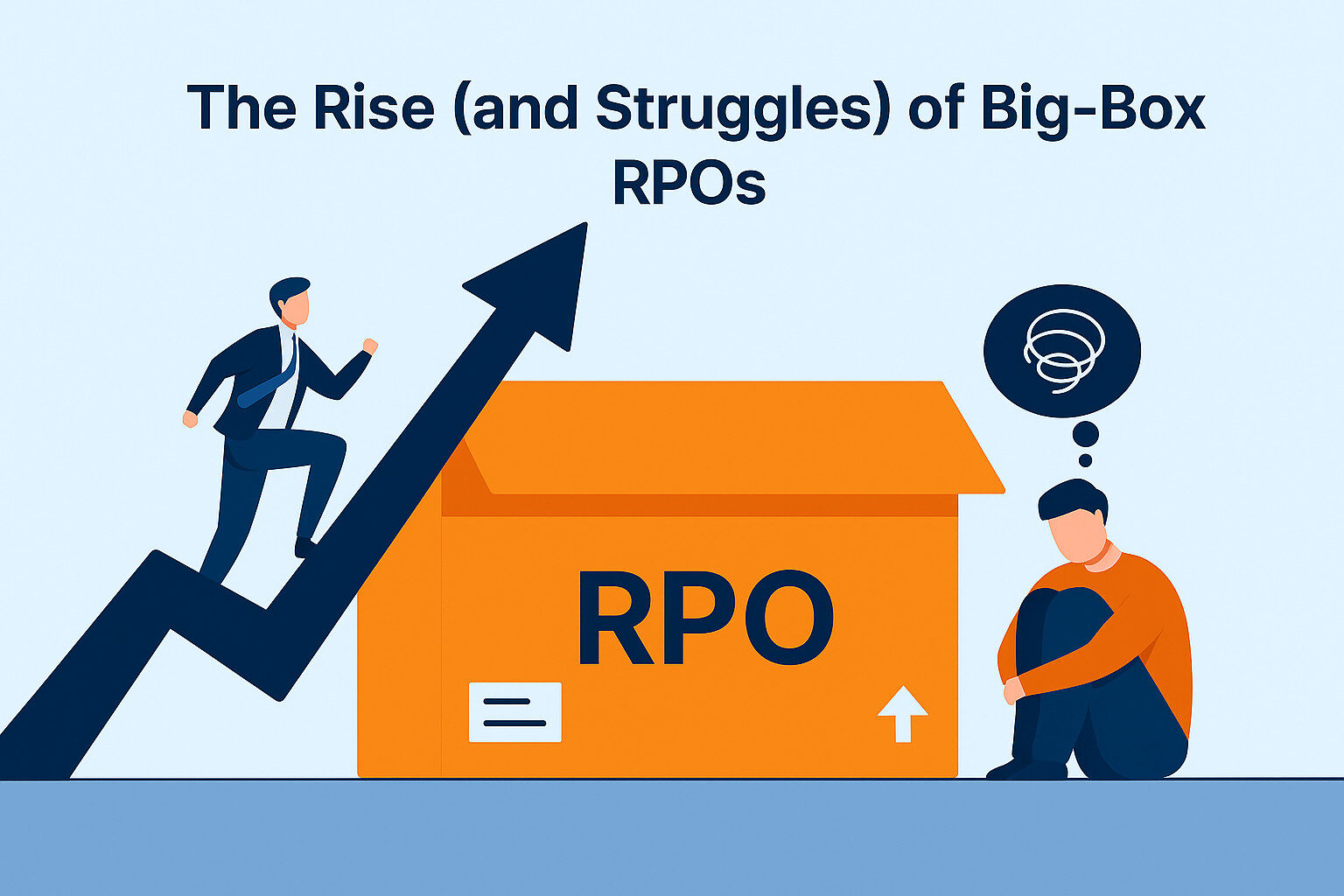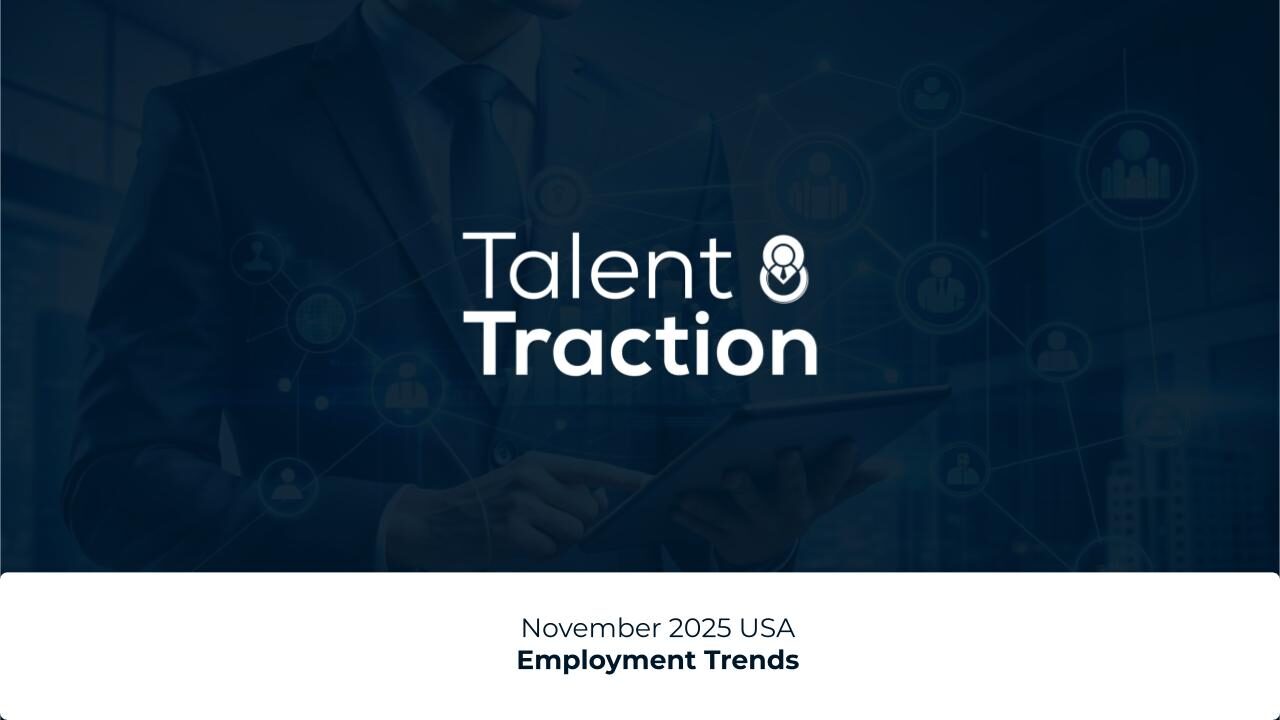In today’s tight labor market, companies aren’t just competing for customers—they’re competing for talent. And increasingly, they’re finding that large, one-size-fits-all recruitment process outsourcing (RPO) providers are falling short.
That’s why more U.S. businesses—especially in industrial, manufacturing, and skilled trade sectors—are switching to specialist recruiters who offer a more agile, personalized, and high-impact approach.
If you’re struggling with hiring bottlenecks, high turnover, or poor-quality candidates, it may be time to rethink your recruitment strategy.
The Rise (and Struggles) of Big-Box RPOs

Recruitment Process Outsourcing (RPO) became popular as a way to outsource all or part of a company’s hiring function to a third-party firm. For large corporations, RPOs promised scalability, cost savings, and standardization.
But what worked in theory hasn’t always delivered in practice—especially for middle-market companies or those with specialized hiring needs.
Common Complaints About RPOs:
- High-volume focus with poor candidate fit
- Rigid processes that don’t flex with hiring demands
- Slow response times
- Shallow understanding of niche industries
- Impersonal, transactional service
- Lack of insight on passive or leadership talent
As industries like manufacturing, EV, logistics, and construction face severe skill shortages, many organizations find that RPOs are not equipped to fill critical, high-skill, or leadership roles effectively.
Why Specialist Recruiters Are Stepping In
Specialist recruiters focus on hiring within a specific industry, function, or job level. Rather than trying to do everything, they go deep—building networks, market knowledge, and placement success in a narrow domain.
At Talent Traction, for example, we specialize in industrial, manufacturing, and automobile leadership roles. We don’t hire hourly warehouse workers—we place the operations directors, plant managers, and field engineers who keep those facilities running.
7 Reasons Companies Are Choosing Specialist Recruiters
1. Deeper Industry Knowledge
Specialist recruiters understand the terminology, certifications, and performance metrics that matter. They don’t just post jobs—they hunt down leaders with the right blend of hard skills and operational understanding.
Example:
A Tier 2 automotive supplier needed a Plant Director who could lead lean manufacturing initiatives across three shifts. A generalist RPO submitted 22 resumes—none had direct Tier 2 experience. A specialist recruiter placed a qualified candidate in 17 days.
2. Access to Passive Talent
Top candidates don’t apply online—they need to be sourced, vetted, and courted.
Specialist firms build long-term relationships with hard-to-reach professionals in their sector. They’re often on a first-name basis with regional directors, engineers, and senior ops talent across hundreds of firms.
3. Faster Time-to-Hire
Because specialists already know your space, they move faster. No need for a long learning curve, alignment meetings, or lost-in-translation intake calls.
Many clients experience 30–50% faster time-to-fill with specialist recruiters.
4. Higher Retention Rates
Generalist firms often focus on placement volume. Specialists focus on placement quality—because they know that retention is the real ROI.
At Talent Traction, our 12-month placement retention rate is 92%+.
5. Customized, Flexible Engagement Models
RPOs often lock companies into long contracts, with little room to adapt. Specialist firms are typically more flexible, offering:
- Contingent search
- Retained search
- Project-based sourcing
- Talent pipelining for future hiring waves
6. Real Partnership—Not Vendor Service
Specialist recruiters serve as an extension of your team. They bring employer branding insights, candidate coaching, compensation benchmarking, and onboarding strategies.
This leads to more successful hires—and a smoother hiring experience for everyone involved.
7. Better Hiring Outcomes Across the Board
Metric | Big-Box RPO (Average) | Specialist Recruiter |
Time-to-fill | 40–60 days | 20–30 days |
Qualified candidate ratio | 1 in 5 | 1 in 2 |
First-year retention | ~70% | 90%+ |
Candidate experience | Mixed reviews | Personalized & positive |
Hiring manager satisfaction | Low-moderate | High |
When RPO Still Makes Sense
To be clear, RPOs are not obsolete. They work well for:
- Very large companies with consistent, high-volume hiring
- Entry-level or hourly roles
- Cost-driven recruitment initiatives
But for mid-sized businesses or companies hiring for critical leadership, technical, or multi-site roles, RPOs often overpromise and underdeliver.
Case Study: Switching from RPO to Specialist Partnership
A Midwest-based manufacturing firm relied on an RPO to hire operations leaders for new facilities. After 9 months of delays, unqualified resumes, and poor onboarding, they switched to Talent Traction.
Within 60 days:
- 3 open roles were filled (Ops Manager, Maintenance Lead, Supply Chain Director)
- Average time-to-fill dropped from 52 days to 19
- Candidate NPS score: 9.2/10
- Hiring manager satisfaction: 100%
Red Flags to Watch for With Big Recruiting Vendors

- “We recruit for every industry.”
- “We guarantee resumes in 48 hours.” (quality over speed)
- “We don’t specialize in your niche, but we’ll figure it out.”
- “Our recruiters rotate frequently.”
- “We need a 6-month commitment.”
If you hear these phrases—it’s time to evaluate alternatives.
What to Look for in a Specialist Recruitment Partner
- Industry-specific experience
- Consistent success placing similar roles
- Candidate pipeline visibility
- Strategic thinking—not just resume pushing
- Talent advisory capabilities (scorecards, onboarding, EVP alignment)
Final Thoughts: Choose Impact Over Scale
In the war for talent, specialization wins.
Companies who work with boutique or specialist recruiters:
- Fill roles faster
- Hire stronger leaders
- Spend less time managing vendors
- Gain strategic insight into workforce planning
If you’re hiring for key roles in manufacturing, EV, logistics, or construction—and you’re tired of high-volume vendors who don’t deliver—specialist recruiters like Talent Traction offer a better way forward.
Let’s talk about how we can help you build a workforce that lasts.




